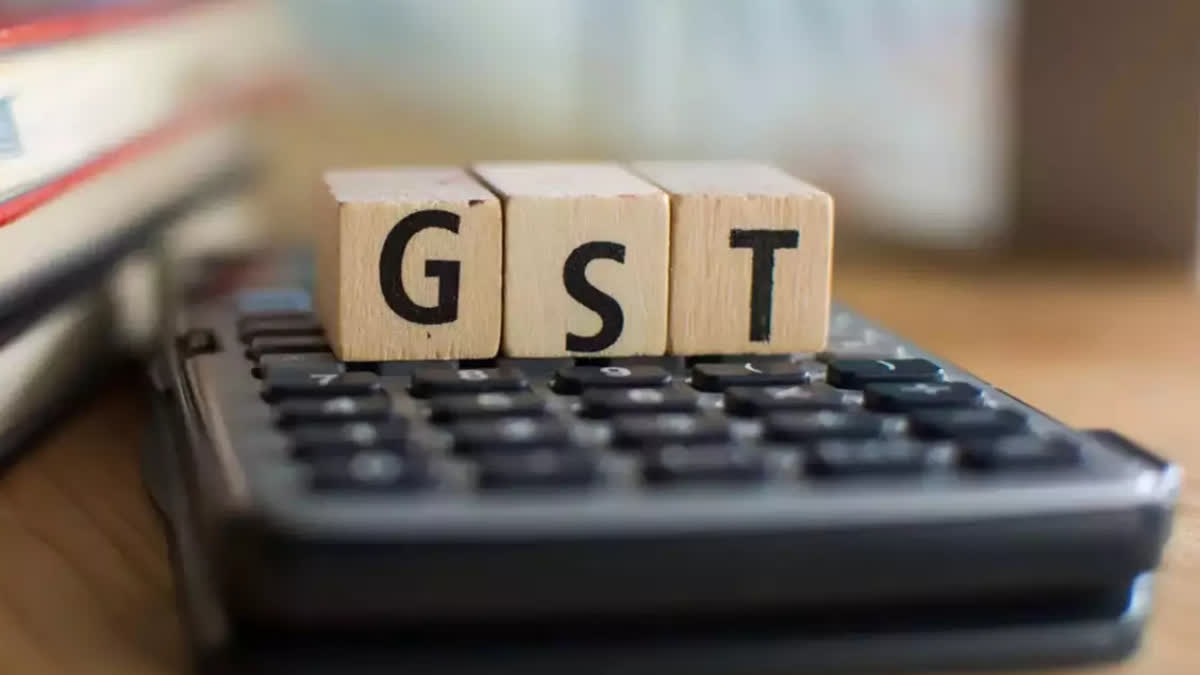New Delhi: The western state of Maharashtra which is home to India’s financial capital Mumbai has reported the maximum number of Goods and Services Tax (GST) invoice fraud cases during the last five years, showed the latest official data. The data showed that another most industrialized and prosperous state, Gujarat reported the second highest number of GST invoice fraud cases followed by Haryana and Tamil Nadu during this period.
According to the data shared by the government in the Parliament on Monday (July 24), Maharashtra alone accounted for 20 percent of the total 26,254 fake GST bill cases registered by the Central GST authorities. The data showed that Central GST authorities registered 5021 fake GST bill cases related to Maharashtra during the financial year 2018-19 to 2022-23.
These fake GST invoice fraud cases pertain to a massive amount of over Rs 30,000 crore which is over one-fourth of the total fake GST invoicing of over 1.15 lakh crore detected across the country during this period. According to the data shared by the finance ministry in the Lok Sabha, tax authorities were able to realise Rs 2215 crore from GST offenders in Maharashtra as they arrested 272 people related to the fake GST bill-related frauds in the state.
In terms of the number of fake GST bill cases, Gujarat reported the second highest number of GST fraud cases as authorities registered 4486 cases related to fake GST bill fraud cases pertaining to the state of Gujarat and they detected a fraud of nearly Rs 11,950 crore in the state. Tax authorities arrested 153 people in Gujarat for using fake GST bills and realised a sum of Rs 1027 crores during the last five financial years.
These two western states are followed by Haryana in terms of fake GST bill cases, an emerging industrial hub adjacent to the national capital territory of Delhi. Central GST authorities registered 3454 fake GST bill cases in Haryana during this period and detected tax evasion worth Rs 12,488 crores and they arrested 94 people and realised a sum of Rs 833 crores.
Also read: GST Council approves 28 pc tax on online gaming; clarifies on taxation of utility vehicle
The southern state of Tamil Nadu reported the fourth highest cases of fake GST invoices as Central GST authorities registered 2556 cases during the last five years and detected tax evasion worth Rs 3894 crores. Tax authorities arrested 90 people in the state and also realised a sum of Rs 362 crores.
Surprisingly, the national capital territory of Delhi ranks third in the number of people arrested for offences related to the use of fake GST bills in the union territory as authorities registered 754 fake GST invoice fraud cases in the national capital and detected a fraud of Rs 14,901 crore and arrested 139 offenders, third highest after Maharashtra (272) and Gujarat (153) and realised a sum of Rs 780 crores.
In the eastern state of West Bengal, Central GST authorities registered 1829 cases related to the use of fake GST bills and detected tax evasion worth Rs 5867 crores and arrested 41 people and realised a sum of Rs 465 crores. In Telangana, 1113 fake GST invoice cases were registered and 61 people were arrested and a sum of Rs 728 crore was realised while in Andhra Pradesh, 490 fake GST bill cases were registered, 9 people were arrested and a sum of Rs 386 crore was realised during this period.
In Rajasthan, 1151 fake GST bill cases were registered and 81 people were arrested and a sum of Rs 487 crore was realised. In Uttar Pradesh, 758 cases were registered, 91 people were arrested and a sum of Rs 1131 crore was realised while in Bihar, 185 fake GST bill cases were registered and a sum of Rs 25 crore was realised but no one was arrested related to these offences.
What is fake GST invoice fraud?
After the implementation of a common goods and services tax (GST) across the country in July 2017, tax authorities noticed that some GST-registered businesses were issuing fake GST bills or fake GST invoices without actual supply of goods or services. It was done in order to fraudulently claim the input tax credit (ITC) available under the GST which has been designed to prevent cascading of taxes as it allows the recipient of goods and services to claim input tax credits for the taxes already paid by the suppliers.
However, fraudulent businesses, in connivance with some unscrupulous chartered accountants and company secretaries started abusing this provision to fraudulently claim input tax credit by using fake GST bills or invoices. These fake GST invoices were issued and used by GST-registered business entities in contravention of the CGST Act of 2017 and Central GST Rules of 2017 and they were primarily used for fraudulently claiming input tax credit (ITC), for inflating turnover, among other things and also for laundering of money.
Also read: GST mop-up crosses Rs 1.5 lakh crore for third month in a row; up 12 pc in May



